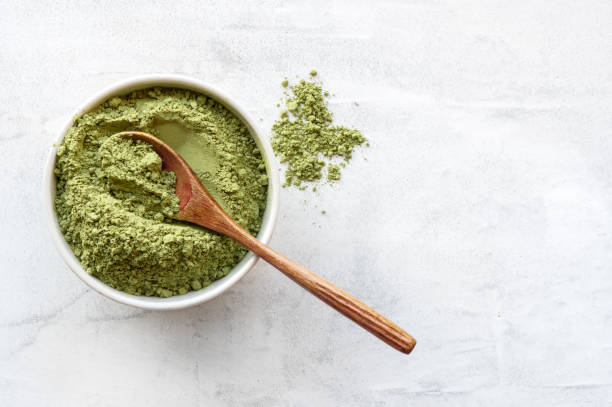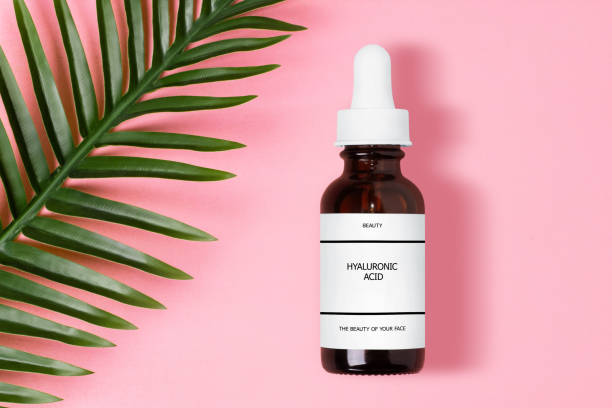The world’s population is aging at an accelerated rate, and the risk of bone and joint health problems, such as osteoporosis, rheumatoid arthritis, and osteoarthritis, gradually increases with age. Osteoarthritis, which results from the progressive destruction of joint cartilage, is a common joint disease and a leading cause of physical dysfunction and pain in older adults.
In the face of huge demand for bone and joint health, the global bone and joint supplements market size and share is expanding, and according to Polaris Market Research, the global bone and joint supplements market is valued at approximately USD 2.16 billion in 2021 and is expected to reach USD 4.02 billion by 2030, growing at a CAGR of 7.1% between 2022 and 2030. Meanwhile, efficacious ingredients related to bone and joint health are gaining popularity.
Glucosamine
Glucosamine is an amino monosaccharide present in the organism, especially in the articular cartilage, and is an important component necessary for the synthesis of proteoglycan in the matrix of human articular cartilage. It selectively acts on the osteoarthritic joints, blocking the pathological process of osteoarthritic joints, stimulating the chondrocytes to produce glycoproteins with a normal multimeric structure, inhibiting the production of superoxide radicals that damage the cells and preventing the damage to the cartilage cells caused by corticoids and some non-steroidal anti-inflammatory drugs and reducing the release of endotoxin factors that damage the cells. It can prevent corticosteroid and some non-steroidal anti-inflammatory drugs from damaging chondrocytes and reduce the release of endotoxin factors in damaged cells.
Chondroitin Sulfate
Chondroitin Sulphate (CS), a glycosaminoglycan covalently attached to proteins to form proteoglycans, is widely distributed in the extracellular matrix and cell surfaces of animal tissues. Randomised, placebo-controlled clinical trials have demonstrated that chondroitin sulphate reduces pain in patients with osteoarthritis, improves joint function, reduces joint swelling, eases impact and friction during movement, draws water into the proteoglycan molecules, thickens cartilage, and increases the amount of synovial fluid in the joint.
Type II Collagen
Type II Collagen, found in bones, joints, tendons and other tissues, mainly acts on cartilage. With its special gel state and smooth structure, it acts as a ‘glue’ connecting the bones and joints of the human body. Research has shown that type II collagen provides nutrition to cartilage, supports the formation of the collagen framework in cartilage, promotes cartilage metabolism, supports joints during aging and stress, and may aid in the mobility of stressed joints.
GABA
GABA has the ability to maintain muscle mass that declines with age in middle-aged and older adults. Studies have shown that GABA supports the physiological regulation of pituitary function and controls pituitary growth hormone secretion. Growth hormone plays an important role in the growth and maintenance of skeletal muscle, and growth hormone has an acute stimulatory effect on amino acid transport and insulin growth factor-1 production, which promotes muscle protein synthesis. GABA administration in humans elevates resting plasma growth hormone concentrations.
Curcumin
Curcumin is a popular anti-inflammatory ingredient for joint health consumers in the US market. Curcumin helps relieve osteoarthritis pain. Several studies have found that within 30 minutes of ingesting curcumin, it degrades into ferulic aldehyde, ferulic acid, feruloylmethane, vanillin, vanillic acid, and other substances, and it is hypothesised that these metabolites may have anti-inflammatory and antioxidant activity, thereby reducing osteoarthritis pain. In addition, the researchers found that curcumin has the chemical properties of a COX (cyclooxygenase) inhibitor, which may provide moderate pain relief.
Vitamin K2
Vitamin K2, or menaquinone, is a naturally occurring fat-soluble vitamin that comes in the form of MK-4, MK-6, MK-7, and other forms, with MK-7 being the most widely used. intestinal flora produce small amounts of Vitamin K2, and most of the body’s Vitamin K2 needs to be consumed through the diet.
The main function of vitamin K2 is to promote calcium absorption and lead calcium into the bone. Osteocalcin is an important protein in the absorption of calcium ions and the formation of bone. Vitamin K2 can regulate γ-glutamyl carboxylase, which carboxylates glutamic acid residues in osteocalcin into γ-carboxyglutamic acid residues, activating osteocalcin. Carboxylated osteocalcin has the ability to bind calcium ions to form osteocalcin, which is recognised by bone cells and facilitates the targeted deposition of calcium ions from the blood into the bone, moving calcium to the right areas of the body, such as bones and teeth, and also removing calcium from inappropriate areas, such as the arteries and soft tissues of the body.
Astaxanthin
Astaxanthin has been shown to reduce the production of reactive oxygen species in wasted muscle, to have an ameliorative effect on skeletal muscle fibrosis caused by fixation of the ankle joints, and to have an effect on oxidative damage to osteoarthritic chondrocytes, which reduces joint discomfort to some extent.
A study randomly divided 60 patients with osteoarthritis of the knee into a treatment group (30 cases) and a control group (30 cases). The treatment group was given astaxanthin capsules and the control group was given fenpropidin. The results showed that the duration of pain relief in the treatment group was shorter than that in the control group, and the joint function of both groups improved after treatment compared with that before treatment, and the treatment group was better than the control group, indicating that astaxanthin has a certain effect on the relief and improvement of osteoarthritic joint pain.
Methylsulfonylmethane (MSM)
Methylsulfonylmethane (MSM) is a naturally occurring organosulfur compound, and the natural synthesis of MSM begins with the uptake of sulfate by algae, phytoplankton, and other marine microorganisms to produce dimethylsulfonylpropionate (DMSP). Numerous in vitro studies have shown that MSM exerts its anti-inflammatory effects by reducing cytokine expression.MSM acts as a micronutrient with enhanced osmotic properties and is commonly used in combination with other anti-arthritic medications, including glucosamine, chondroitin sulfate, and boswellic acid. It was found that the combination of MSM with glucosamine and chondroitin sulfate was effective in reducing C-reactive protein in rats with test-induced acute and chronic rheumatoid arthritis.
Hyaluronic Acid
Hyaluronic acid is the main component of synovial fluid, secreted by synovial cells, fibroblasts and chondrocytes. It has various physiological functions such as regulating protein expression, assisting the diffusion and transport of water and electrolytes, and facilitating wound healing, and it plays an important role in the protection of articular cartilage. According to research, when inflammatory diseases of bone and joint occur, the production and metabolism of hyaluronic acid in the joints are abnormal, its concentration and molecular weight are significantly reduced, and the cartilage is degraded and destroyed, leading to the appearance of physiological dysfunction. Trials have shown that oral administration of hyaluronic acid (when commercialised, hyaluronic acid is generally available in the form of sodium salt, i.e. sodium hyaluronate) can reduce joint pain and stiffness, improve joint discomfort, and help alleviate the symptoms of degenerative arthritis. For example, a randomised, double-blind, placebo-controlled trial lasting 2 months in 20 patients over 40 years of age with knee osteoarthritis found that hyaluronic acid significantly reduced pain, improved physical function and quality of life in patients with knee osteoarthritis.



